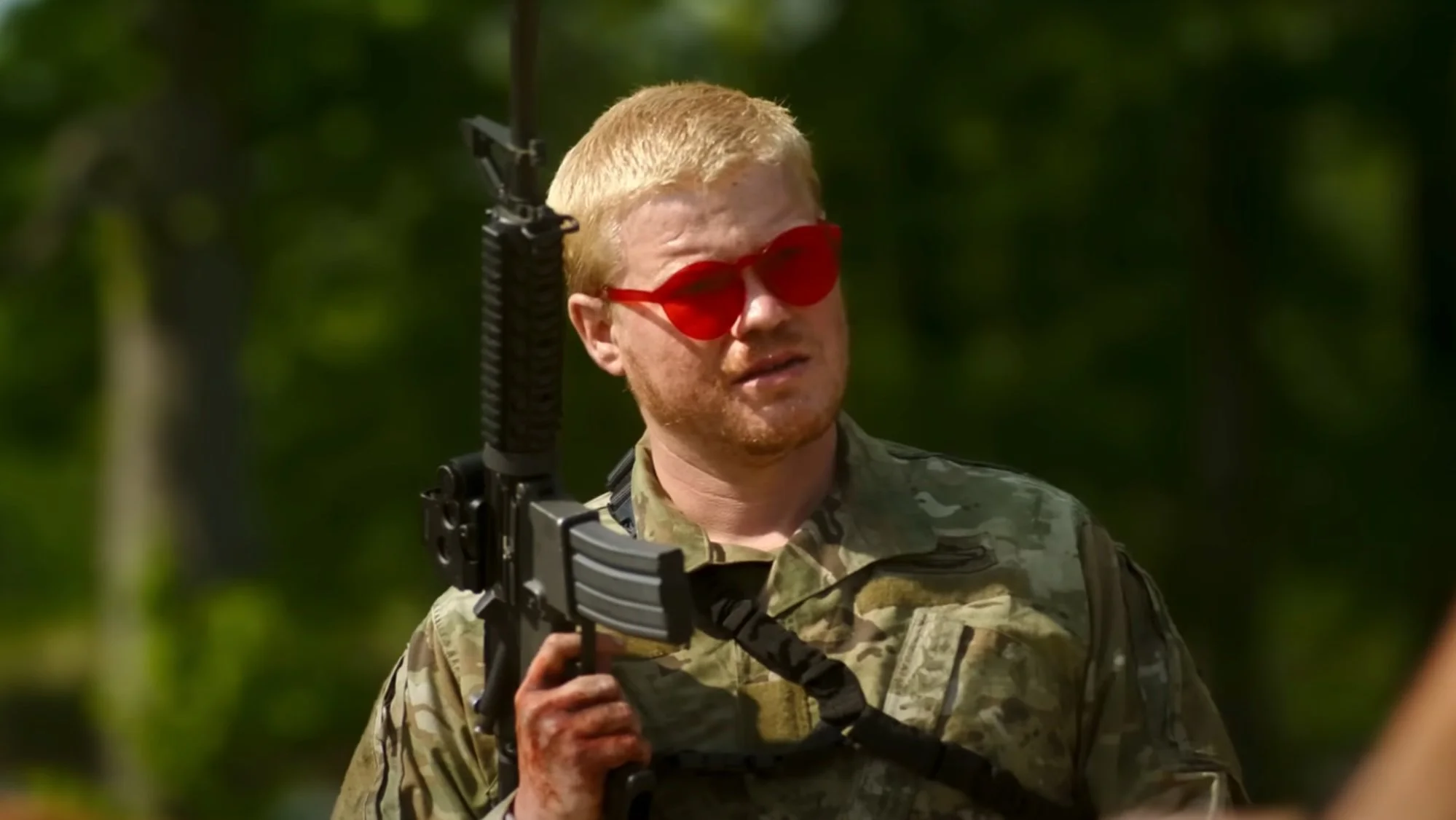If Alex Garland is involved in a project, then it’s getting my eyeballs. Even if he follows through on his recent statements that he’s retiring from directing to once again solely focus on writing, he’ll have left an impressive mark in his brief stint pulling double duty. His work with Danny Boyle on 28 Days Later remains one of the preeminent examples of post-9/11 cinema. His latest effort, and possibly his last as both writer and director, is Civil War. Only time will tell if it becomes a defining film of the post-January 6th era, but it wouldn’t surprise me if it does.
Kirsten Dunst is our lead, the haunted and world-weary combat photojournalist Lee. A veteran of hot spots all over the world, she navigates us through an America splintered by brutal civil conflict. Wagner Moura plays her partner, Joel. Though a bit more easygoing than the tightly wound Lee, the writer knows his way around the battlefield and he is equally as driven. The beginning of the film finds the pair gearing up to go to Washington, DC, where they hope to interview the POTUS (Nick Offerman). Though journalists are treated as enemy combatants in the former capital of the United States, they believe that the war will soon end, and that may provide them with the opportunity of a lifetime.
Along for the ride are Jessie (Cailee Spaeny), a young photojournalist who idolizes Lee, and Sammy (Stephen McKinley Henderson), Lee and Joel’s mentor and an elder statesman of the field. Their journey is fraught with both matter-of-fact horror and outright peril. Maybe the film’s most harrowing scene involves a meeting with a casually ruthless soldier played by the always excellent Jesse Plemons. As the country crashes down around them, can this makeshift family survive?
First things first. Garland’s script is less interested in critiquing current US politics than in using it as a jumping-off point for a character-centric story with strong world-building. This is not a hit piece, nor is it an allegory or satire. It does capture the mood of America and then presents a horrifying visage of what could be if we aren’t careful. Again, though, the film is much more concerned with its characters. Our understanding of this frighteningly close world is filtered through the protagonists. They mostly refrain from making judgments, moral or otherwise, and only seek to provide unvarnished truth. It’s complex work that I’m sure will be rattling around in my head for days to come.
Rob Hardy’s cinematography is flat-out gorgeous. Whether it’s aerial overhead shots of ruined cities, abandoned suburban parking lots strewn with the remnants of recent battles, chaotic firefights, or a quiet moment between two characters on a pontoon moored at a serene lake, the imagery draws us into the story. Though it could be argued this is an action film of sorts, it never gets too big. Tension is favored over thrills and Hardy demonstrates that he understood the assignment perfectly. There are so many shots in this film that are just stunning, but some of my favorites are when we see victims hanged from an overpass vandalized with graffiti that says “go Steelers,” a shot of a ruined Christmas village that harbors hidden danger, and the destruction of the Lincoln Memorial. It should also be noted that effective use is made of the still photography taken by Lee and Jessie.
I know I said that Civil War isn’t quite an action film, but its action sequences are outstanding nevertheless. Gunfire is loud as hell and terrifying. We are often right in the midst of modern urban warfare, but we are always acutely aware of what’s happening. Jake Roberts’ editing ensures that storytelling remains clear and the pacing never lags through the 109-minute runtime.
Garland makes some interesting choices for his soundtrack, with several cuts being ironically upbeat. These selections serve to amplify the bleak atmosphere and put some exclamation points on the violence and cruelty. Geoff Barrow and Ben Salisbury’s original score works in a different way, mostly leading to uneasiness and an exhausted sadness.
Now, I don’t think Garland quite nails the ending. Lee is a compelling character, and the filmmaker gives us a fairly unique vision throughout the film, so Lee’s actions in the closing moments feel much too conventional. That being said, it did not ruin the movie for me. It certainly resonates with Garland’s themes and it completes a couple of arcs, but it just feels too easy.
Despite some quibbles with the final minutes, I greatly enjoyed Alex Garland’s Civil War. I honestly can’t wait to watch it again when it hopefully gets a 4k release on disc. Gripping, beautiful, and nervy as hell, this dystopic near-future scenario is one of the most of-the-moment films I’ve seen recently, despite avoiding any specificity that would instantly date it. Highly recommended for fans of Full Metal Jacket, Children of Men, and The Hurt Locker.
Michael Cavender




